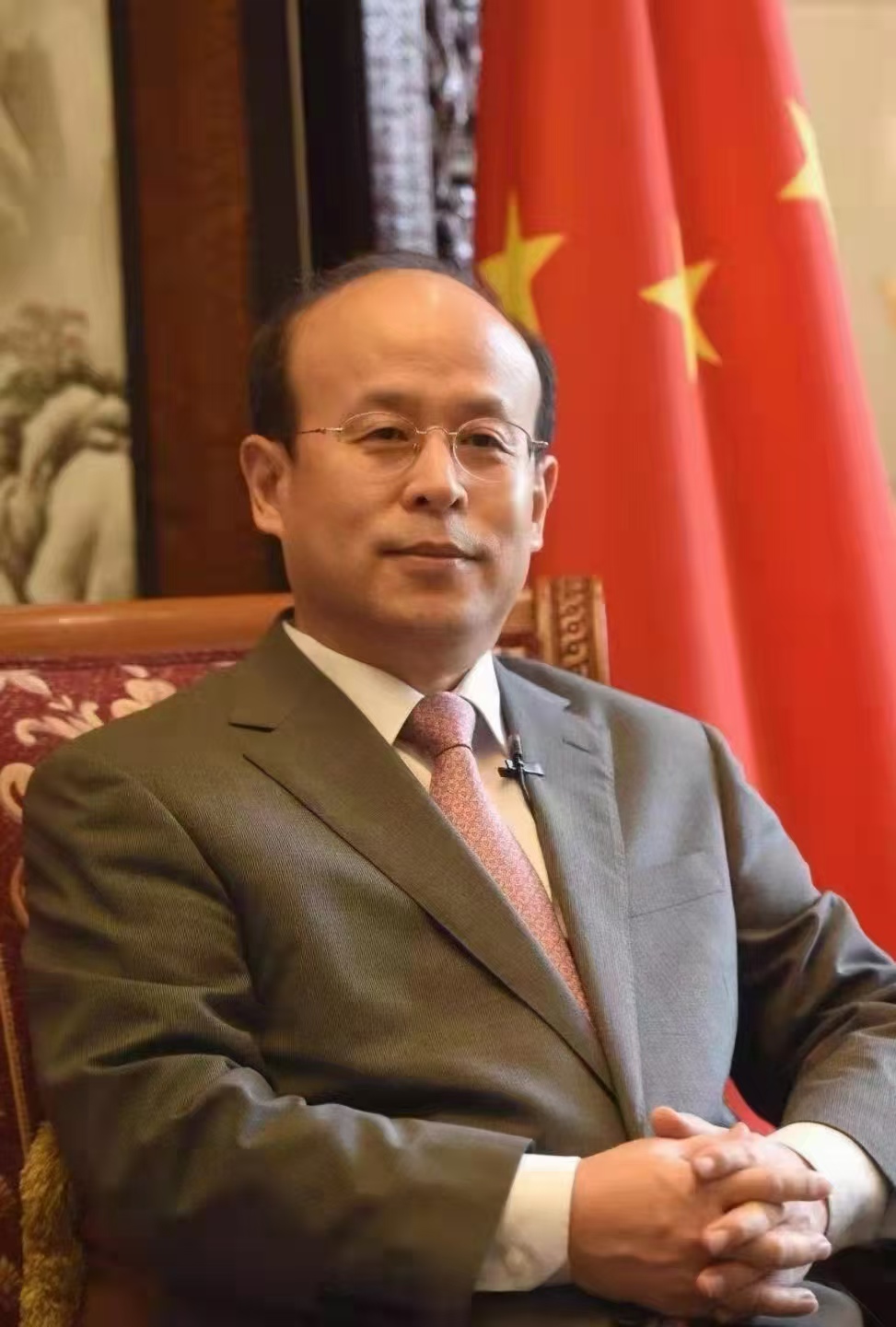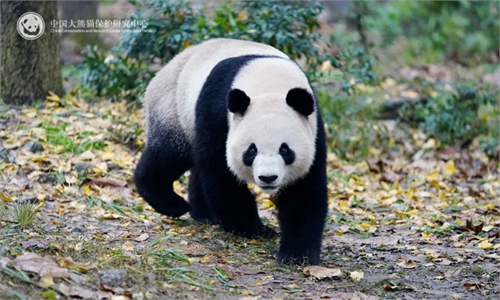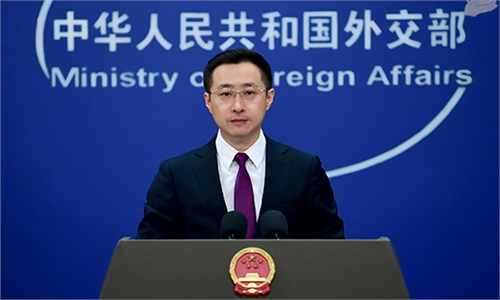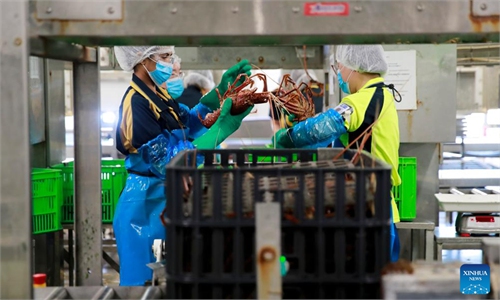Editor's Note:
This year marks the 10th anniversary of the China-Australia comprehensive strategic partnership. Over the past decade, China-Australia relations have made significant progress, despite facing some challenges. In an exclusive interview with the Global Times (GT) reporter Yin Yeping, Chinese Ambassador to Australia, Xiao Qian (Xiao) reflected on the trajectory of the bilateral relationship and outlined his vision for future ties.

The Chinese Ambassador to Australia Xiao Qian Photo: Courtesy of the Chinese Embassy in Australia
GT: How do you evaluate the current state of China-Australia relations?
Xiao: This year marks the 10th anniversary of the establishment of the China-Australia comprehensive strategic partnership. Over the past decade, China-Australia relations have made significant progress, though also experiencing some challenges. Both sides have consistently upheld the positioning of the China-Australia comprehensive strategic partnership, guiding the relationship through challenges and toward continued development.
In recent years, leaders of both countries have met multiple times and successfully exchanged visits, injecting vibrant momentum in bilateral relationship. Recently, on the sidelines of the 19th G20 Leaders' Summit, Chinese President Xi Jinping met with Australian Prime Minister Anthony Albanese. The two leaders reached important consensus on advancing the improvement and development of bilateral relations, expanding mutually beneficial cooperation, and supporting and safeguarding economic globalization and free trade, providing direction for the healthy and stable development of China-Australia relations.
Dialogue at all levels and across various sectors has been fully resumed, and exchanges and cooperation in areas such as politics, diplomacy, trade, science and technology, education, culture, tourism, military, law enforcement, and regional affairs have gradually recovered and made positive progress.
Currently, with joint efforts from both sides, China-Australia relations are stabilizing and improving, entering an important phase of further development on a stable foundation.
History and reality have fully demonstrated that cooperation benefits both, while conflict harms both. A healthy and stable China-Australia relationship aligns with the fundamental interests of both countries and is beneficial to the prosperity and progress of both nations, the Asia-Pacific region, and the world.
Looking ahead, China and Australia should firmly implement the strategic consensus reached by the two countries' leaders and adopt a more proactive approach to building a more mature, stable, and fruitful comprehensive strategic partnership. This will better serve the interests of the peoples of both countries and make a greater contribution to promoting world peace and development.
GT: How do you view the economic complementarity between China and Australia? What potential do you believe both sides should further explore?
Xiao: China and Australia are important economic and trade partners, with highly complementary economic structures, and their economic and trade cooperation is mutually beneficial and win-win.
Australia has abundant mineral resources and agricultural products, and leading technologies in industrial innovation. China, with a market of over 1.4 billion population, boasts a complete industrial system, ample innovative talent, and rich application scenarios. Strengthening cooperation between the two countries can transform their complementary advantages into a strong trend of joint development.
China is the world's largest consuming market of steel, importing 60 percent of its iron ore from Australia. Since 2009, China has been Australia's largest trading partner for 15 consecutive years. In 2023, Australia's trade surplus in goods with China reached $62.7 billion, nearly 75 percent of Australia's total trade surplus with the world. These figures fully demonstrate the mutually beneficial and win-win nature of China-Australia economic and trade relations and again highlight how this cooperation benefits the peoples of both countries.
Currently, China is further deepening reform comprehensively to advance Chinese modernization, while Australia is promoting Future Made in Australia. This creates broader opportunities and opens up greater space for China-Australia economic and trade cooperation.
Strengthening economic and trade exchanges between the two countries can transform complementary advantages into strong momentum for their joint development, injecting more positive energy into the sustained recovery of the economies of both nations, the region, and even the world.
GT: What are the issues or challenges facing China-Australia relationship that need to be overcome?
Xiao: Nowadays the world is entering a new period of turbulence and transformation, with increasing uncertainty, instability, and unpredictable factors. Both China and Australia are important countries in the Asia-Pacific region, sharing many common interests but also facing many common challenges, particularly the risks and challenges posed by unilateralism and policy uncertainty from certain countries.
While China and Australia have different histories, national conditions, social systems, and cultures, there is no fundamental conflict of interests between the two countries. We are friends, not foes. The essence of China-Australia relations is mutual benefit and win-win cooperation.
Looking into the future, both sides should implement the important consensus reached by the two countries' leaders, adhering to mutual respect, equality, and properly handling and managing differences.
Both sides should maintain the positioning of the China-Australia comprehensive strategic partnership, ensuring that the bilateral relations continue to develop steadily, injecting more stability and certainty into the peace and development of both countries, the region, and even the world.
GT: You have had extensive exchanges with people from business and industrial community across Australia. Based on your understanding, what are the expectations held by the Australian business community regarding China-Australia economic and trade cooperation?
Xiao: China and Australia have highly complementary economic structures, and there is enormous potential for economic and trade cooperation.
During President Xi's state visit to Australia ten years ago, the two sides announced the substantial conclusion of negotiations for the China-Australia Free Trade Agreement, significantly enhancing the level of bilateral trade liberalization and propelling economic and trade cooperation between the two countries onto the fast track.
The Australian business community places great importance on and positively assesses trade and economic cooperation with China - Over the past decade, China and Australia have closely collaborated in traditional areas such as energy and minerals, agriculture, education, and finance, achieving fruitful results that fully demonstrate the mutually beneficial and win-win nature of their economic and trade relations.
The Chinese market is of vital importance to Australia, and there is great potential for both sides to deepen cooperation in traditional sectors while promoting high-quality development.
Additionally, the two countries have engaged in positive collaboration in emerging fields such as healthcare, green energy, and decarbonization and emission reduction. China and Australia each have complementary advantages in areas like technology, talent, and markets, and joint cooperation will create greater development opportunities for both sides.
GT: Recently, China has resumed routine port inspection and quarantine of lobsters from Australia. How do you view the impact of this move on China-Australia trade relations?
Xiao: During the meeting on the sidelines of the leaders' meetings on East Asia cooperation held in Vientiane in October, Chinese Premier Li Qiang and Australian Prime Minister Anthony Albanese reached an important consensus to fully resume Australian lobster exports to China by the end of this year. Subsequently, the relevant authorities of both countries held in-depth and effective technical discussions regarding the lobster exports, and China evaluated the corrective measures provided by Australia.
Recently, China has resumed regular inspections and quarantine procedures for the relevant products in accordance with the law and regulations. This is a significant positive development for bilateral relations, as it will bring more affordable, high-quality products to Chinese consumers, enriching people's choices in daily life, while also creating more revenue for the Australian lobster industry.
GT: Australia is set to hold federal elections in 2025. How do you view the future development of China-Australia relations?
Xiao: The Australian federal election is an internal affair of Australia. I would like to emphasize that developing good China-Australia relations is in the interests of both the Australian nation and its people, and it is a shared aspiration across various sectors of Australian society.
Regardless of which party wins, the trend of improving and developing China-Australia relations will not change.
Historically, China has maintained friendly exchanges with all political parties in Australia. Both the Australian Labor Party and the Coalition have made positive contributions to the development of China-Australia relations.
The establishment of diplomatic ties between China and Australia was achieved under the leadership of Australian Labor Party leader and then Prime Minister Gough Whitlam, and the establishment of a comprehensive strategic partnership between the two countries was reached during the Coalition's tenure.
In the coming year, China is willing to continue maintaining exchanges and cooperation with all Australian political parties, to maintain the current positive momentum of China-Australia relations and further improve bilateral ties.



